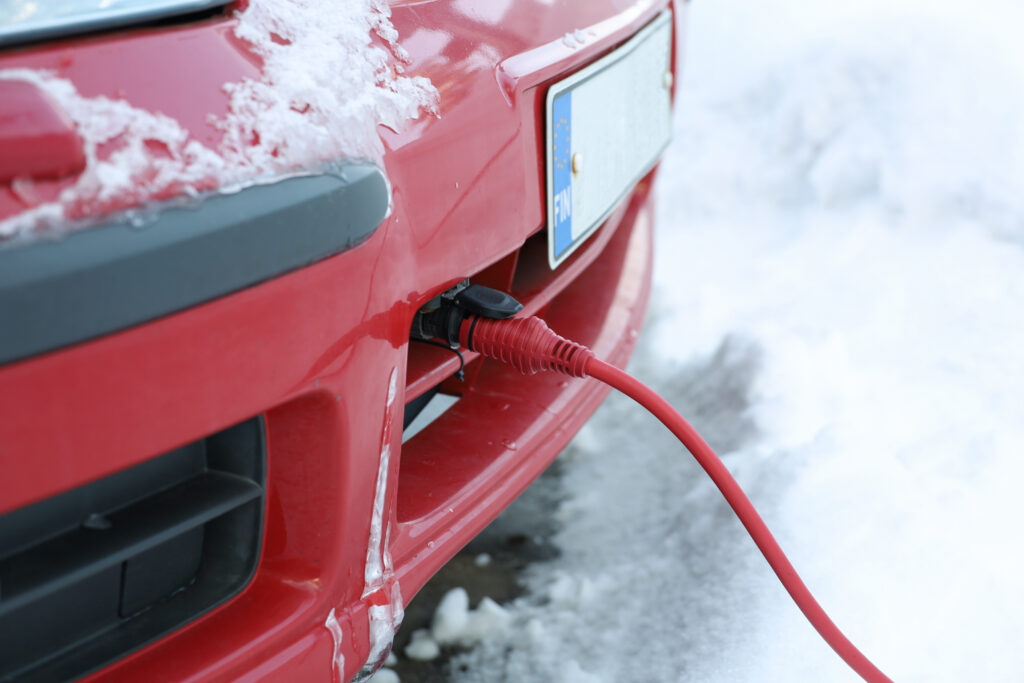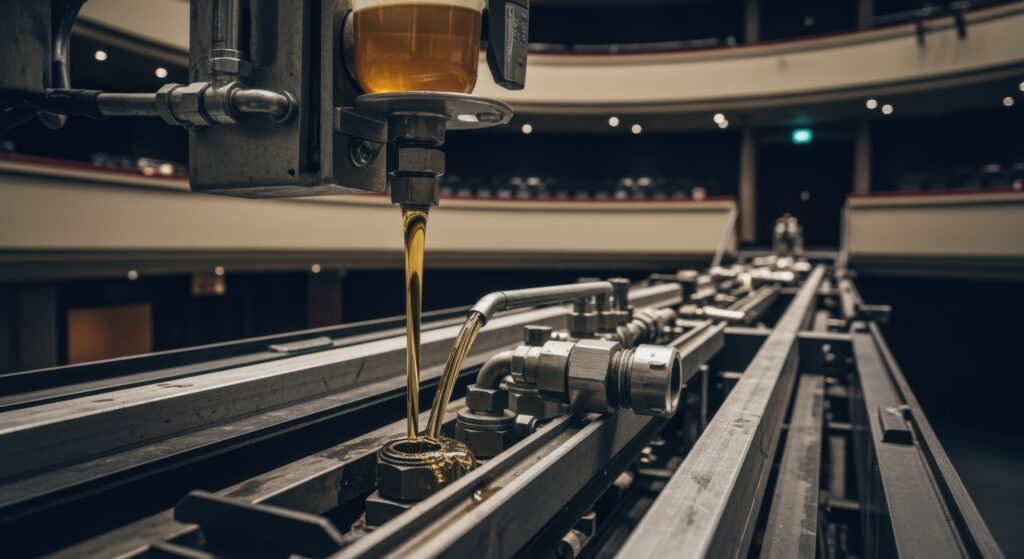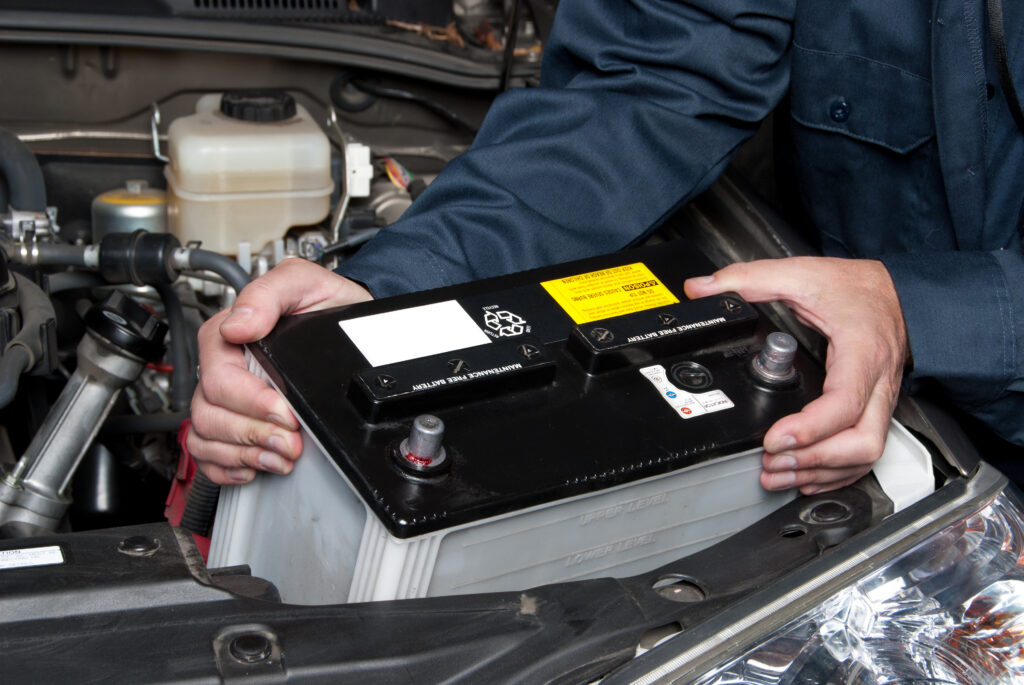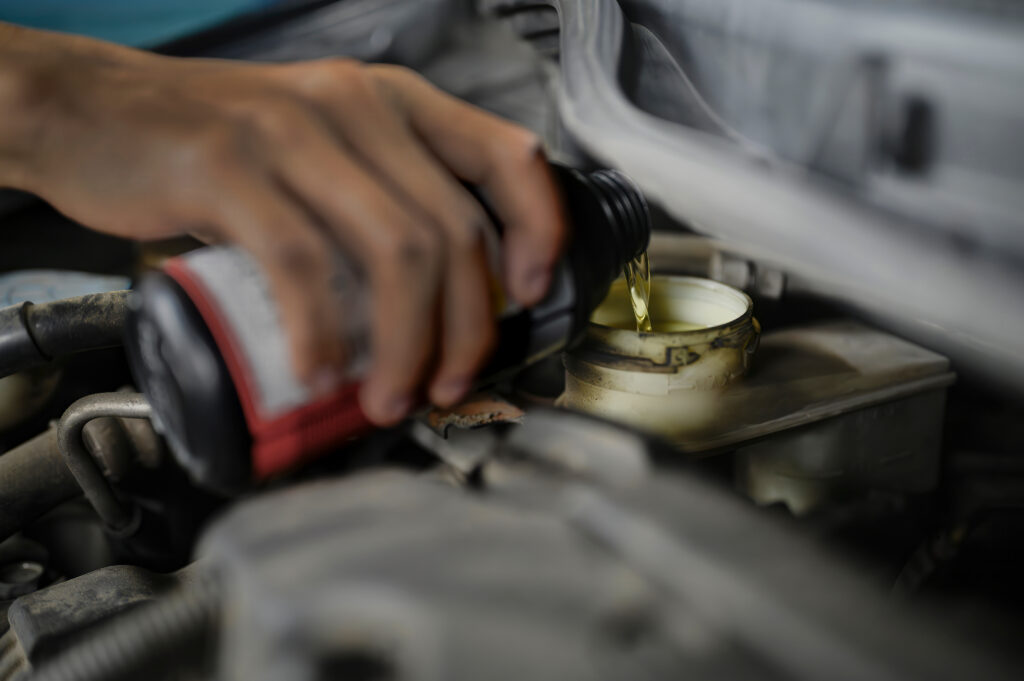Boise winters can be unpredictable. While the Treasure Valley is known for its mild weather compared to other parts of Idaho, temperatures can still dip into the teens—or even single digits—during late December and January. For many drivers, this brings up a common question each year: Do I need an engine block heater?
At Naylor’s Auto Repair, we help Boise drivers prepare their vehicles for cold weather by explaining when and why an engine block heater makes sense, how it works, and the best practices for using one safely and efficiently. Whether you drive an older truck, a hybrid, or a modern SUV, understanding how block heaters protect your engine can help you extend its lifespan and ensure a reliable start every winter morning.
What Is an Engine Block Heater and How Does It Work?
An engine block heater is an electric heating device that warms up your engine’s coolant or oil before starting the vehicle. Most block heaters plug into a standard household outlet and are designed to keep the engine at a moderate temperature when the car is parked in cold weather.
When temperatures drop below freezing, your engine oil thickens and moves more slowly through the system. This increases friction and makes it harder for your car to start. A block heater combats this by warming up the fluids in the engine, allowing for smoother and quicker starts, reduced wear on moving parts, and improved fuel efficiency.
Common Types of Engine Block Heaters
- Freeze Plug Heater: Installed directly into the engine block where coolant circulates. This is the most common and efficient type.
- Oil Pan Heater: Attached to the oil pan to warm the oil directly, ideal for diesel engines.
- In-line Coolant Heater: Placed along the coolant line; it circulates warm coolant through the engine.
- Magnetic Heater: Temporary and portable; attaches magnetically to the oil pan or block surface for convenience.
Each type provides a slightly different benefit, but all serve the same purpose—to help your engine start more easily and operate safely in extreme cold.
When You Should Use an Engine Block Heater in Boise
In Boise, winter mornings frequently hover between 15°F and 30°F, which is right around the temperature range where block heaters start to offer real benefits.
Most experts, including the Idaho Transportation Department and AAA, recommend plugging in your block heater when temperatures fall below 20°F. In colder regions of Idaho—like McCall, Sun Valley, or the Palouse—block heaters are practically a necessity. In Boise, they’re more of a smart preventive measure for those who park outside or commute long distances early in the morning.
Ideal Situations for Using a Block Heater
- Outdoor Parking: Vehicles left outside overnight are more vulnerable to cold starts.
- Diesel Engines: Diesels rely on heat to ignite fuel, so a cold engine can make starting nearly impossible.
- Older Vehicles: Cars built before 2005 or with high mileage benefit from reduced engine strain.
- Frequent Short Trips: A block heater helps ensure the engine reaches optimal temperature more quickly, improving efficiency.
Using a block heater in these scenarios reduces wear and tear, improves oil flow, and helps protect your battery from unnecessary strain in cold conditions.
Pros and Cons of Using an Engine Block Heater
Like any vehicle upgrade, block heaters have both advantages and drawbacks. Understanding both can help you decide whether it’s a worthwhile investment for your Boise driving routine.
Pros
- Easier Cold Starts: Warm oil and coolant make for smoother ignition and less strain on the starter.
- Reduces Engine Wear: Prevents metal components from expanding too quickly and minimizes friction during startup.
- Improves Fuel Economy: A warm engine reaches its optimal efficiency faster, saving fuel during short winter drives.
- Better Emissions: Reduces unburned hydrocarbons that contribute to pollution, helping Boise maintain cleaner winter air quality.
- Protects Battery Life: A warmer engine draws less current from the battery, extending its lifespan.
Cons
- Requires Power Access: You’ll need a nearby electrical outlet or a dedicated extension cord rated for outdoor use.
- Energy Use: Plugging in for long periods increases electricity consumption.
- Installation Costs: While most installations range between $150 and $400, some vehicles require additional labor.
- Not Always Necessary: During Boise’s milder winters, occasional use may suffice, so constant reliance isn’t always cost-effective.
At Naylor’s Auto Repair, we often recommend block heaters for those who regularly park outdoors or drive early in the morning, especially for diesel and high-mileage vehicles. For garage-kept vehicles or hybrids, the benefits may be less pronounced unless temperatures drop below 15°F for extended periods.
Best Practices for Using a Block Heater in Idaho Winters
Proper usage ensures maximum benefit without wasting energy or overworking your vehicle’s systems. Here are a few best practices for Boise drivers:
- Plug in 2–4 hours before starting your vehicle.
Most engines only need a few hours to warm up effectively. Using a timer can save energy while ensuring your car is ready to go. - Use an outdoor-rated extension cord.
Always check for frayed wires and ensure connections are elevated off the ground to avoid snow or ice buildup. - Don’t leave it plugged in all night.
Continuous use offers no additional benefit and only wastes electricity. - Combine with a battery maintainer.
For drivers with long commutes or diesel engines, a battery trickle charger helps maintain optimal performance in sub-freezing weather. - Schedule seasonal inspections.
During fall maintenance visits at Naylor’s Auto Repair, we check wiring, grounding, and heating elements to ensure everything operates safely and efficiently before the deep freeze arrives.
By following these practices, you can keep your car dependable all winter long without unnecessary energy costs.
Common Questions About Block Heaters in Boise
1. Do I really need a block heater if I live in Boise?
Not always—but it’s helpful if you park outdoors, drive early in the morning, or own a diesel or older gasoline vehicle. Boise’s winter lows occasionally drop into the teens, where block heaters can make a noticeable difference in starting performance and fuel economy.
2. What temperature should I start using a block heater?
You should begin using your block heater when temperatures are expected to fall below 20°F overnight. For diesel engines, plug in closer to 32°F to prevent hard starts.
3. Can using a block heater save fuel?
Yes. Studies by the U.S. Department of Energy show that pre-warmed engines can reduce fuel consumption by up to 10% during the first few miles of driving.
4. How can I tell if my vehicle already has a block heater?
Look for an electrical cord hanging near the grille or front bumper. If you’re unsure, Naylor’s Auto Repair at Naylor’s auto repair can check during your next service visit and install one if necessary.
5. Is it safe to install one myself?
Some portable heaters are DIY-friendly, but permanent installations should always be handled by a qualified technician. Incorrect installation can lead to coolant leaks or electrical shorts, especially in newer vehicles.
Other Cold-Weather Car Care Tips for Boise Drivers
Using a block heater is only one part of preparing your car for winter. To keep your vehicle running smoothly through Idaho’s cold season, consider these additional maintenance steps:
- Check your battery health: Weak batteries are the most common cause of winter breakdowns.
- Use winter-grade oil: Lower viscosity oils, like 0W-20 or 5W-30, flow better in cold weather.
- Inspect your coolant mix: Ensure a proper antifreeze-to-water ratio for freeze protection.
- Test your heater and defroster: These systems are critical for safety and comfort.
- Switch to winter tires: Cold pavement reduces tire flexibility—winter tires improve traction and control.
Boise’s fluctuating weather—from wet slush to dry freezes—demands consistent vehicle care. Having your car inspected before December ensures you’re prepared for whatever winter brings.
Why Boise Drivers Trust Naylor’s Auto Repair
At Naylor’s Auto Repair, we understand Idaho winters and the unique needs of Treasure Valley drivers. Our ASE-certified technicians provide comprehensive winter readiness inspections, including block heater installations, electrical diagnostics, and seasonal maintenance checks.
We believe in education as much as repair—helping customers make informed decisions about what’s best for their vehicles, their budgets, and their safety. Whether you’re unsure if a block heater is right for you or you need expert installation before the next cold snap, our Boise auto team is here to help.
Don’t wait until your engine struggles to start. Contact Naylor’s Auto Repair today to schedule your winter vehicle inspection or engine block heater installation.





